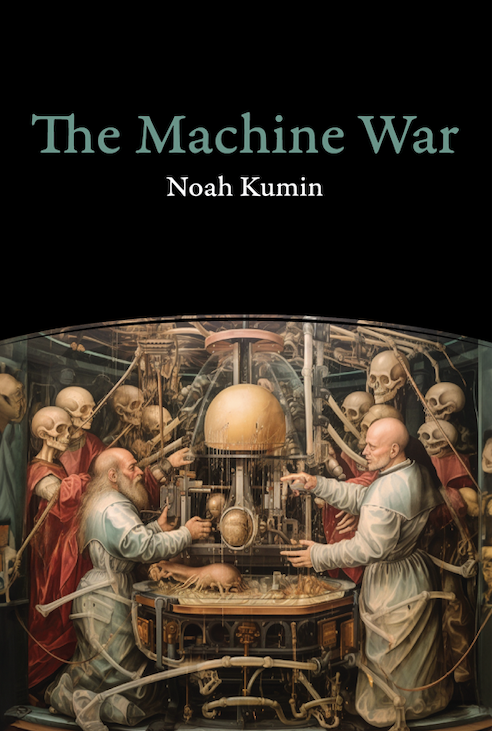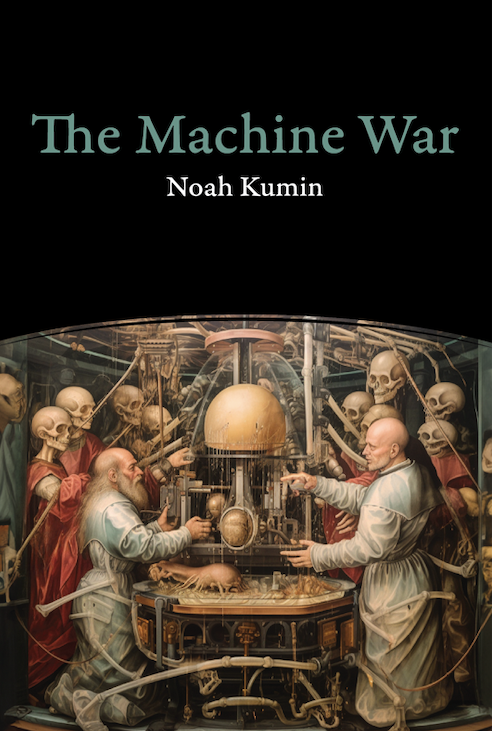Qadmon Press
The Machine War
The Machine War
Couldn't load pickup availability
A philosophical history of the computer from Archimedes to today, and an investigation into Urbit's project to reinvent computing from scratch
"This book is areal pleasure and I'm blessed that I can say I'm reading this for work on company time without crossing my fingers."—Marc Hochstein, Coindesk
This story is a strange one. It begins with 33 lines of an invented language—like a Martian’s first attempt at human speech, or a Principia Mathematica written by someone who had never laid eyes on a math textbook—which is so compact it can fit onto a T-shirt. It involves the elevation of conferences on Lambda Calculus and the Haskell programming language—not usually fire starters—into events that became national news. Its first blueprints were drawn up by one of the most eccentric and incendiary American political-philosophical firebrands this side of Tom Paine, and yet it rests on an idea so straightforwardly benign that it has brought a nod of interest and excitement to anyone I’ve ever explained it to—from novelists to carpenters to activists to film producers. It is a project that has drawn into its orbit architects (of physical buildings), lawyers, survivalists, neo-luddites, Buddhist monks, and the man who became a meme when he held a sign behind the head of Federal Reserve Chair Janet Yellen, exhorting those watching on C-SPAN to “Buy Bitcoin.” The effort of these people has been called a “hoax,” an “art project,” a “stroke of genius” 12 and “something out of a Neuromancer world.” One thing that’s impossible to argue is that it is not only among the most ambitious computing projects of the 21st century, but among the most ambitious social projects, and that if it takes off, it is has the power to change how the world communicates for good. Its enthusiasts sometimes refer to themselves as Martians, and in that spirit, I invite the reader to buckle up before zoom around the globe a bit, and see the world we live in from a new perspective.

